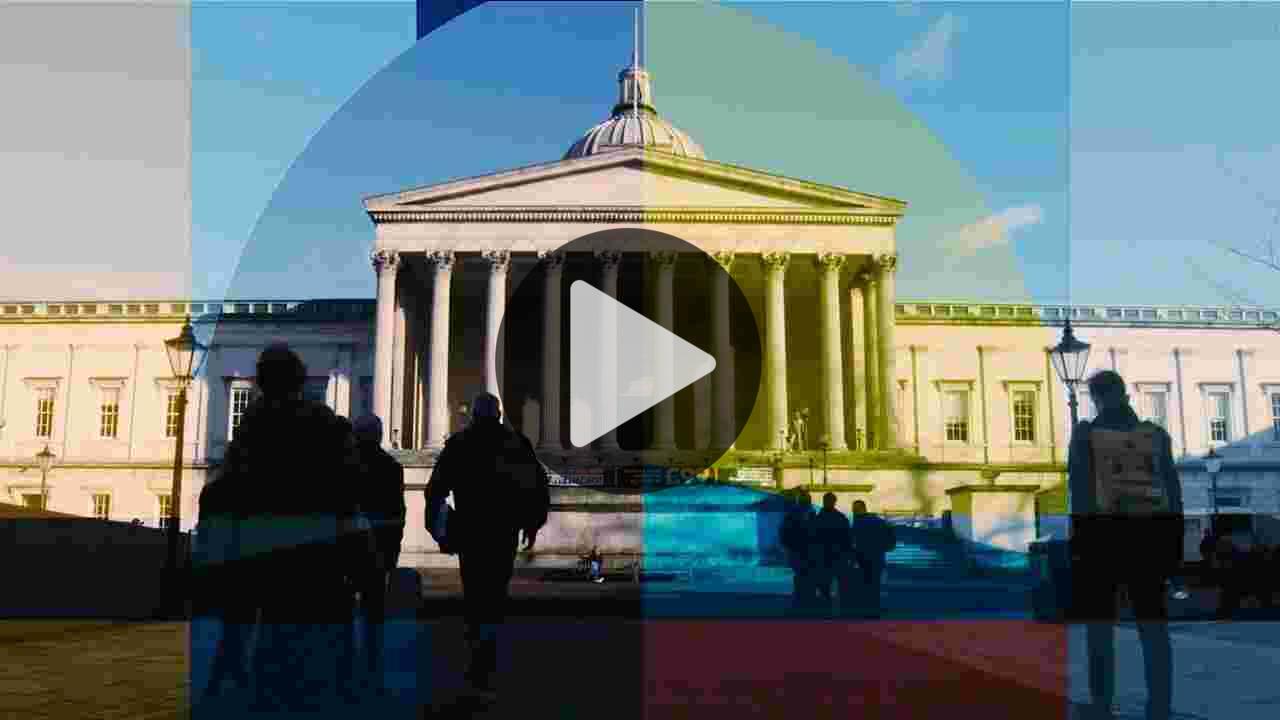Today, we are consistently ranked among the world’s top universities. Our excellence extends across all academic disciplines, from one of Europe’s largest and most productive centres for biomedical science to world-renowned centres for architecture (UCL Bartlett) and fine art (UCL Slade School).
Find out more: http://www.ucl.ac.uk/about-ucl
Degree programmes: http://www.ucl.ac.uk/prospective-students/
Research impact case studies: http://www.ucl.ac.uk/impact/
Open access research repository: http://discovery.ucl.ac.uk/
UCL 2034 strategy: http://www.ucl.ac.uk/ucl-2034
Facebook: https://www.facebook.com/uclofficial
Twitter: https://twitter.com/uclnews
SoundCloud: https://soundcloud.com/uclsound
Instagram: http://instagram.com/ucl_news
This video was produced by UCL Communications and Marketing with Spectrecom Films. For more information contact r.eagle(at)ucl.ac.uk (research communications) or n.poortvliet(at)ucl.ac.uk (prospective student communications).
Notes on statistics
• Student numbers from UCL Registry: http://www.ucl.ac.uk/srs/statistics
• QS World University Rankings 2014/15: http://www.topuniversities.com/university-rankings/world-university-rankings/2014
• Nobel Prizes have been awarded to 29 people who are, or were, students or academics at UCL. The most recent addition, in 2014, is John O’Keefe (Medicine). Find out more about UCL’s Nobel Prize winners: http://www.ucl.ac.uk/about-ucl/history
• UCL was founded in 1826 to open up education to students of any race, class or religion. Find out more about UCL’s history: http://www.ucl.ac.uk/about-ucl/history
Credits
• Solar movie showing an eruption around the time of solar maximum. Thanks to NASA SDO and colleagues at UCL Mullard Space Science Laboratory (1:11)
• 3D map of the structure of vegetation using a terrestrial laser scanning technique. Thanks to Dr Kim Calders and Dr Mat Disney (UCL Geography). Dr Calders was formally of Wagneingen University (1:12)
• Neurons in the brain of a mouse are engineered to allow neuroscientists to simultaneously record and control their activity with light. Thanks to Lloyd Russell and the Hausser Lab (UCL Wolfson Institute for Biomedical Research) (1:13)
• Animation of polymer interacting with clay. Thanks to Professor Peter Coveney, Dr James Suter, and Dr Derek Groen (UCL Centre for Computational Science (1:14) 원문보기
Uploaded By @Vlogger


